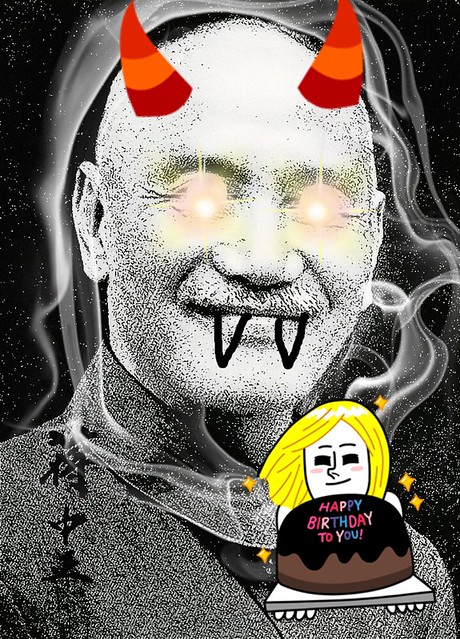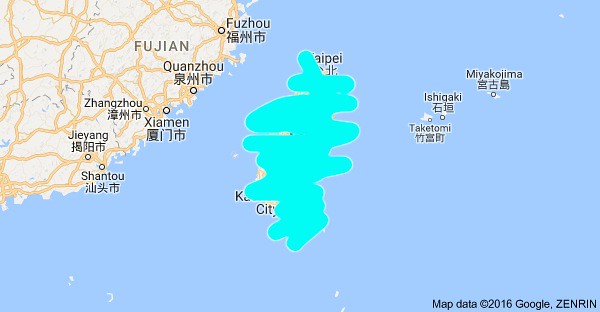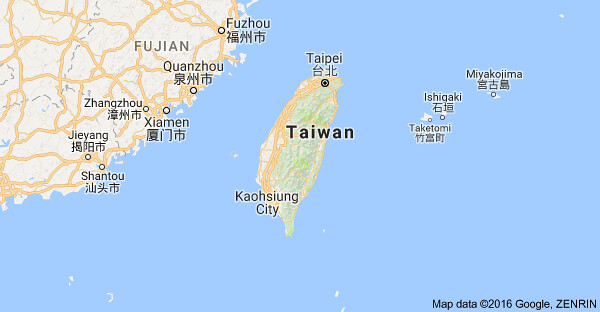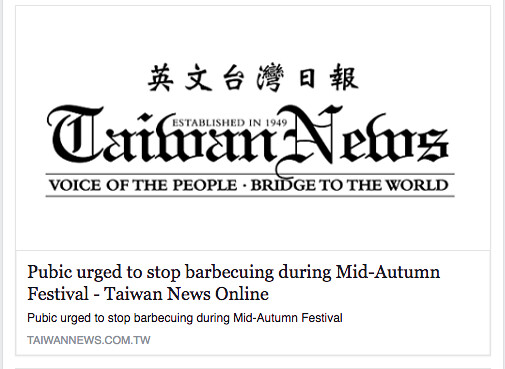If you've noticed that in the later half of this year I haven't been the most consistent blogger in terms of frequency of updates, it's because I actually have some exciting news!
First,
I've been published! This isn't my first publication (I worked for a regional newspaper before I started college, and
more relevantly have a story relating one of my experiences in Taiwan published here) but it is my first academic publication. It's not even all that academic, because I don't work at a university, don't have academically-based postgraduate education (my Delta is
technically equivalent to a Master's but is more of a professional degree than an academic one), don't have a research budget and, thus, can't really do hard research. But, I did enjoy writing it, and hope you check it out - first link in this paragraph. I explore teaching note management skills as a method of introducing learner autonomy into the classroom, with an exploration of my own note-management teaching strategy.
Second, I've been accepted to grad school! I'll be starting at
this program at the University of Exeter in July 2017. It's a program with a special schedule made for people like me who can't just up and move to England, or somewhere else, for postgraduate study but don't have a lot of options where they live. I applied quite early, but I was ready to and the platform was open, so I don't feel too weird about that. I would have gone this year if I'd had the money. That's what took away my blogging time, to be honest.
Anyway, I have a few thoughts on my process of researching, choosing and applying for Master's programs as an American in Taiwan. I am sorry to say that while there are some good things, it's mostly bad news. That is unfortunate not only for Taiwan, but also the USA.
A dearth of options in Taiwan
My biggest hurdle was finding a good program - I started in Taiwan but just couldn't find one that quite met my needs. I may not be in Taiwan forever, so I did need something from a school that is highly regarded internationally. I'm sorry to say that nothing on offer in Taiwan fits the bill. NTU is the only university of international repute, and doesn't offer my desired program. That doesn't mean other universities are necessarily "bad". They are not, however, universities whose degrees will get you noticed abroad.
There are MA TESOL and MA Applied Linguistics/Applied Foreign Languages programs in Taiwan: Shi-da, National Taiwan University of Technology and other schools offer them. Many are taught in English. They would not, however, help much internationally. Also, testimony of what one actually learns on these programs from a friend who did one in teaching Chinese turned me off to the idea of studying in Taiwan. He was, shall we say, less than impressed.
I have heard that there's a Master of Education program available through a small university in the US that allows you to take classes here, but that was something someone told me - I haven't found any evidence of its existence in my research. Anyone?
Columbia University Teacher's College Tokyo would have been an option, but they are apparently closing the campus - at least, a friend of mine went there so I know it's a real thing, she says it's closing, and I can't even find a reference to it existing online. Not that it matters: the tuition was similar to that in the US, and I can't afford US tuition. So, studying in a fully face-to-face program from Taiwan was quickly dismissed as 'not an option' for me.
Distance programs aren't great options
There are a number of distance programs:
Nottingham,
University of Southampton with the British Council and more in the UK (many, many more - I couldn't possibly link to them all),
USC and
Anaheim in the US (these were the only two distance programs I could find) - but I didn't want to do a distance Master's.
Why? The first reason is that, rightly or wrongly - and I happen to think wrongly - distance-learning postgraduate degrees tend to get the side-eye from academic institutions looking to hire, even if they are from reputable institutions (they also run the risk of not being recognized in Taiwan). The second is that I did distance learning for my Delta. It was fine, but I want something different. I want to actually meet people in person and have real-time discussions using my actual voice.
...neither was going abroad
So, I looked into what it would take for me to do a face-to-face Master's outside of Taiwan. Brendan and I are super-solid, I knew we could weather this, though I didn't particularly want to be apart for a year or two. I looked at King's College, Durham, University College London and more in the UK (not even going to bother with links, you can Google those yourself) and very few choices in the USA, because I honestly could not afford US tuition. I also looked at York University in Canada, but couldn't have afforded to live there and pay tuition. The same is true for the universities of Melbourne, Brisbane and Queensland, which I also researched. I looked at Germany, as well, but most schools (at least the ones I looked at, including Bonn) want you to pass a German proficiency test even if you are taking a program in English. I doubt I'd have the time to learn German at that level, so...no.
My country of origin is not affordable
In fact, I only looked at two face-to-face programs in the US: Columbia (because if I'm going to commit I may as well aim high - also I wouldn't need a car in New York and it's close to family) and
SUNY Albany, one of the bigger campuses of my state university system and the only one to offer an MA TESOL. State university tuition would have been "cheaper" (cheaper than Satan's own private university pricing, so that's hardly a consolation) and at the time I was thinking I could live with my grandfather. He's since moved and that is no longer an option.
This is where I throw a
lot of shade on the USA.
Total tuition for the programs noted above that are based in the USA:
USC Rossier School of Education (online) - approximately $50,000. They bill it as being the same as face-to-face: you videoconference the classes and they treat you as though you are 'there'. You're not residing there, though, so I do wonder why the tuition has to be as high. They don't need to worry about space, maintenance, grounds, utilities or security during my residency because there isn't one.
Anaheim University (online): A little over $20,000, including inexplicable fees such as a "graduation fee" and a "thesis fee" (which is apparently to print and bind your thesis, but $450? Are they binding it in unicorn leather? What the hell?) I appreciate that they are trying to break down exactly what your $20,000 is paying for, and I appreciate that their tuition is more similar to what UK schools charge. But the breakdown doesn't make them look good. My 'graduation fee' is
all the fucking money I pay for my fucking degree, not some $300 you tack on. No. Not Okay. Also, I have some serious side-eye for charging for an online degree what UK schools charge for a face-to-face degree. Why exactly does it have to be that high?
SUNY Albany MA TESOL without state certification (which I don't need) - face-to-face: $12,000 and change, per year, 2 year program so $24,000 total. For
in-state tuition.
Columbia University - face-to-face: fuck that I'm not even going to bother, what the fuck makes them think a fucking English teacher can afford to pay that shit back, fuck you, a fucking pox on your house!
In comparison, the distance programs in the UK cost about 7,000 pounds, and face-to-face cost about 15,000 and change - for the whole program.
This is for international students - don't forget that. What that translates into in US dollars is changing by the day, but suffice it to say the total tuition
for an international student (did I mention
international), not in-state or even a citizen, is
cheaper than going to my own state university in the US which is supposed to be the affordable option.
My program at Exeter is quite a bit less than that, and I'm an international student.
English teaching isn't a particularly highly-paid profession - I could never have afforded to pay back US tuition. It's just not feasible.
It is really sad that my own country couldn't make it possible for someone whose career requires postgraduate education, and who would certainly do well in it, to actually get it.
This is a prime reason why I do not intend to return. Why should I give "back" something to society through teaching and education that society doesn't see fit to give me? I appreciate my basically okay public education through secondary school but the US tertiary and postgraduate system is completely, and utterly, fucked. I want nothing to do with it.
But thanks, UK!
To end on a high note: when I got my offer letter I walked down the street alternating between feeling
like this, and
like this.





